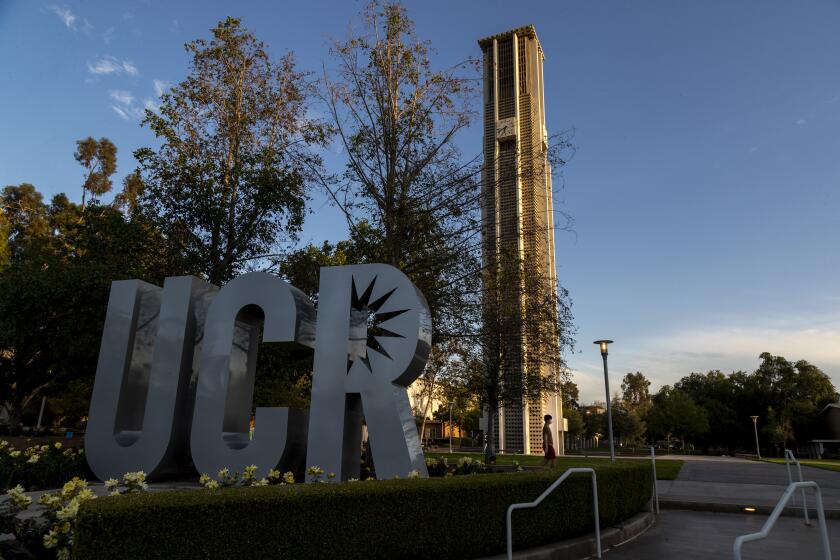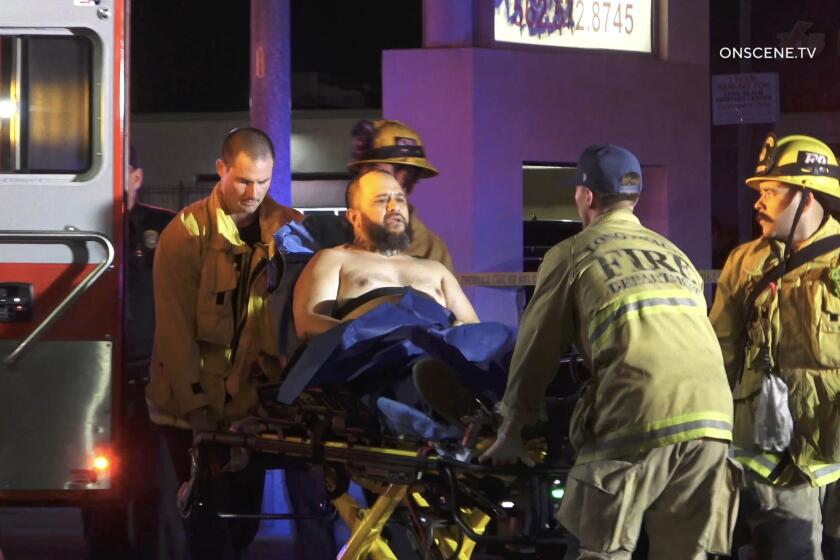Court Puts 1-Year Limit on Misdemeanor Arrests
Police must arrest people accused of misdemeanors within a year after charges are filed, or risk having the case thrown out, the state Supreme Court ruled Thursday.
If that one-year period has expired, authorities must prove in a hearing that there were good reasons for failing to make the arrest, the court said in a 5-2 ruling. An example of a good reason would be that a defendant was actively evading arrest.
Acting in a Los Angeles case, the court said authorities risk violating defendants’ Sixth Amendment rights to speedy trials if arrests are not made within a year after a complaint is filed.
The one-year period is based on the statute of limitation generally applied to misdemeanors, the court said, adding: “Statutes of limitation reflect a legislative construction of the speedy trial guarantee.”
In an opinion by Justice Joseph Grodin, the court ordered that a hearing be held to determine whether to dismiss charges against Joaquin Mario Serna, who was accused in a 1978 complaint of embezzling $955 from the gas station where he worked.
The court noted that Serna had claimed he was unaware that a complaint had been filed and that he was being being sought. Authorities did not arrest Serna until 1983, when he was stopped for a traffic violation, prompting police to check for any unanswered warrants.
Deputy City Atty. Greg Wolff said the ruling could affect a large number of cases, though not the majority of misdemeanors in the state.
Most misdemeanors--for prostitution or drug possession, for example--stem from observations by police officers, who make arrests on the spot. Thus, officers do not have to seek out those defendants to order them to appear in court. The ruling will, however, affect crimes such as misdemeanor battery or embezzlement, where the victim complains to police, who then must find the suspect and make the arrest.
Wolff noted that at this time last year, there were 286,000 unserved warrants for misdemeanors statewide. It was not known how many had been pending for more than a year, or how many involved defendants who had been arrested but then failed to appear for a court proceeding.
Grodin based the ruling primarily on the U.S. Constitution. Chief Justice Rose Elizabeth Bird joined the majority but said she would have gone further by including the protection under the California Constitution.
Justices Malcolm M. Lucas and Otto Kaus dissented, saying the U.S. Supreme Court never extended the speedy trial rights to delays between the time a complaint is filed and an arrest is made. He said the speedy trial right begins after an arrest (Serna vs. Superior Court, L.A. 31856).
More to Read
Start your day right
Sign up for Essential California for news, features and recommendations from the L.A. Times and beyond in your inbox six days a week.
You may occasionally receive promotional content from the Los Angeles Times.





